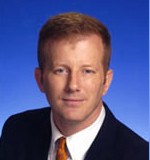NASHVILLE:
“The general assembly recognizes that certain subjects are particularly sensitive and are, therefore, best explained and discussed within the home. Because of its complex societal, scientific, psychological, and historical implications, human sexuality is one such subject. Human sexuality is best understood by children with sufficient maturity to grasp its complexity and implications….”
That pseudo-philosophical paragraph is the introduction to the latest bill introduced in the Tennessee General Assembly by one Stacey Campfield, the former state representative and freshly minted state senator from Knoxville who seems determined that his name will forever more be synonymous with the term “gay-bashing.”
It will be remembered that Campfield was the author of the infamous “Don’t Say Gay” measure that passed the state Senate in 2011 and knocked around in the House all of last year before being shelved — an outcome that was assisted by Governor Bill Haslam’s tactful but firm suggestion that the bill, which forbade any mention of homosexuality in elementary schools and had attracted either contempt or ridicule in most of the Western world, was “unnecessary.”
The fact is: If Stacey Campfield had not existed, it might have been necessary to invent him. Not a day goes by on Capitol Hill in Nashville that Campfield doesn’t take some action designed to make his name a proverb.
Observe: On Wednesday, January 30, was born Son of Don’t Say Gay, or Don’t Say Gay II., beginning with the benign sociologese of the paragraph heretofore quoted, which is quickly followed by this:
“(b) At grade levels pre-K through eight (pre-K-8), any such classroom instruction, course materials or other informational resources that are inconsistent with natural human reproduction shall be classified as inappropriate for the intended student audience and, therefore, shall be prohibited.”
Why prohibited? Why, for the good of the putatively or actually gay child, of course:
”A school counselor, nurse, principal or assistant principal “ may counsel anyone “who may be at risk of engaging in, behavior injurious to [one’s] physical or mental health and wellbeing … provided, that wherever possible such counseling shall be done in consultation with the student’s parents or legal guardians. Parents or legal guardians of students who receive such counseling shall be notified as soon as practicable that such counseling has occurred….”
There is more to the bill, but you get the idea:. In other words, Say “gay” if you must, but say it out of the hearing of the Regular Kids and in a way that isolates the suspected or known outliers and makes them squirm. Call it Tough Love. Call it The Cure.
And that’s not the worst of it.
Enter Jeff Woods, the incomparable “Pith in the Wind” sage of the Nashville Scene, who has happily reneged on the brief retirement his announced last year, and why not? With Campfield still on the loose, what choice did he have but to return to duty?
Woods reads the new bill to be “requiring schoolteachers and administrators to out gay children to their parent… for the child’s own good, of course.” As he notes, Campfield’s bill (called “the Classroom Protection Act”) would, in its quarantined way, let “schoolteachers and administrators counsel gay students who are facing bullying or other problems, but the school then must report it to the child’s parents.”
Like Woods, we find it impossible not to quote the response of Wonkette in an item which ends this way:
“Before we go, yr Wonkette (particularly this portion of yr Wonkette who actually happens to be a female lesbian) would like to cordially invite the Tennessee General Assembly to eat a bag of lightly-salted poison rat dicks. Enjoy! Choke!”
We will hazard here the prediction that Campfield’s newest philippic against the state of gaydom will ultimately meet the fate of his first effort, except that, unlike that first version of Don’t Say Gay, it is unlikely to receive the imprimatur of either Senate or House.
On second thought, let’s make that a guess — not a prediction.
Additional
But is there another Stacey Campfield, a more thoughtful version of the smash-mouth iconcoclast — a persona that doesn’t get enough attention because the stunt-prone Campfield’s inflammatory social legislation obscures it?
There is some evidence to suggest that the answer is yes.
It is Campfield’s membership on the Senate Education Committee (as one its House equivalent beforehand) that has enabled him to be on the front end of his now-notorious gay-baiting legislation. But he can — and does — offer constructive contributions to school-related bills.
It was Campfield, for example, who took the lead last week in challenging the bona fides of Tennessee Virtual Academy, the fledgling online taxpayer-subsidized public-school service which was authorized by the 2011 General Assembly.
Representatives of TNVA had tappeared before the Senate Education Committee with a souped-up new-media version of their curriculum — a dog-and-pony show,as some observers called it — and were about to leave it at that when Campfield dug in and queried them sharply about the substandard scores achieved by TNVA students and the reasons for them.
This week the TNVA presneters got more of the same, on a bi-partisan basis, from members of the House Education Committee, and Governor Bill Haslam would announce his intention to limit the scope of TNVA pending better results.
It was a debate that Campfield was a prime mover in, but, understandably, his role in it — one in which he could offer leadership in achieving a consensus — was obscured by the new Don’t Say Gay II bill and by another inflammatory proposal to cut welfare payments to families of under-performing students.
And that’s nobody’s fault but Campfield’s.
